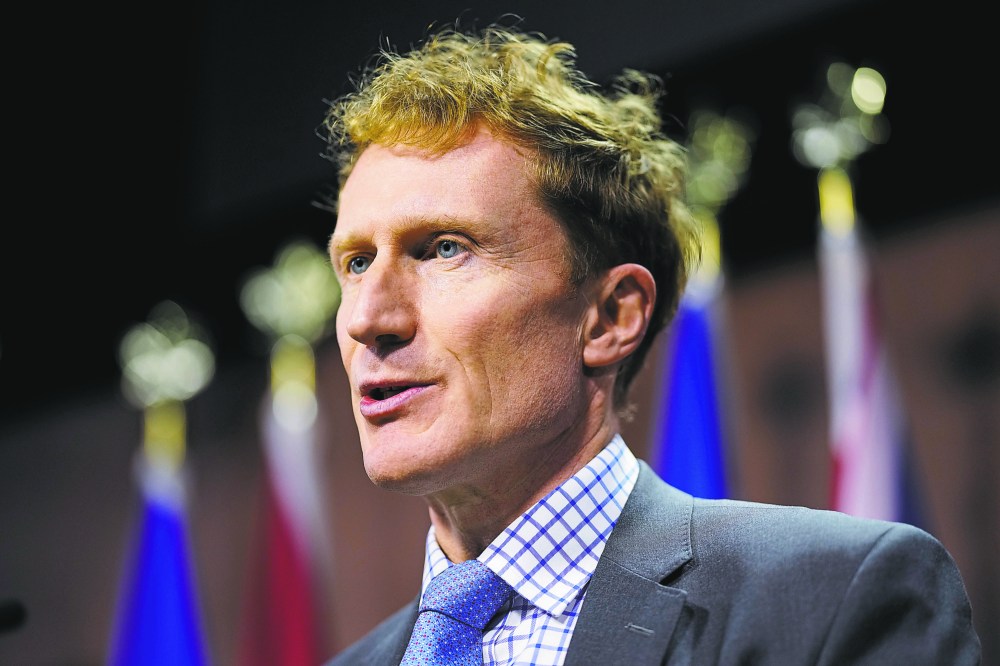ACC and BU awaiting impact of Ottawa’s student visa drop
Advertisement
Read this article for free:
or
Already have an account? Log in here »
We need your support!
Local journalism needs your support!
As we navigate through unprecedented times, our journalists are working harder than ever to bring you the latest local updates to keep you safe and informed.
Now, more than ever, we need your support.
Starting at $15.99 plus taxes every four weeks you can access your Brandon Sun online and full access to all content as it appears on our website.
Subscribe Nowor call circulation directly at (204) 727-0527.
Your pledge helps to ensure we provide the news that matters most to your community!
To continue reading, please subscribe:
Add Brandon Sun access to your Free Press subscription for only an additional
$1 for the first 4 weeks*
*Your next subscription payment will increase by $1.00 and you will be charged $20.00 plus GST for four weeks. After four weeks, your payment will increase to $24.00 plus GST every four weeks.
Read unlimited articles for free today:
or
Already have an account? Log in here »
Hey there, time traveller!
This article was published 23/01/2024 (672 days ago), so information in it may no longer be current.
Brandon’s two post-secondary institutions are waiting to see what the impact will be on enrolment after Ottawa’s decision to reduce the number of international students coming to Canada.
Federal Immigration Minister Marc Miller announced Monday during a Liberal cabinet minister retreat in Montreal that the government would reduce the number of international student visas over the next two years by a third to combat an overwhelming need for housing in certain regions in Canada.
Miller said Ottawa will approve about 360,000 undergraduate study permits for 2024, which is a 35 per cent reduction from the previous year. Each province and territory will be allotted a portion of the permits, based on population.

In Brandon, more than 2,500 international students are studying at Assiniboine Community College and Brandon University this year.
Mark Frison, the president and CEO of ACC, said the federal government’s focus is not on Manitoba, yet it will affect international student numbers regardless.
“There’s obviously lots of moving pieces to this. All the implications are not yet clear. So, there is a lot of more details to come out. And there will be a lot of devils in the details. But in general, there is nothing about this that I would say for Manitoba is going to make things better,” Frison said.
Premier Wab Kinew, who was in Neepawa for an announcement yesterday, said he would be meeting with federal officials to get more details on how the announcement will impact Manitoba.
“We look forward to consultations with the federal government on this topic because it will affect Manitoba,” Kinew said.
“I talked about potentially putting enough pressure on tuition here,” he added. “We have joined programs in the province that could be affected by the details of this announcement. There’s an overall cap that the feds announced today, but there’s also some more detailed changes that they’re looking to implement. So, it is going to be important for us to have input on that.”
Frison questioned the ability to reach the cap the federal government will set. It was revealed last week that the province fell short in its nominee program — processing just 6,333 of the 9,500 nominations the former government was approved to process in 2023. The NDP government has blamed the issue on a lack of appropriate staffing numbers and is hiring more employees to process applications.
“While the details are not yet fully available, if Manitoba is required, to be more involved in the processing, and don’t even have the staffing to do their own provincial nominee work on immigration, this could potentially slow down the process,” Frison said.
“And that is one of the things in international student work. There is a lot of actors involved there and a lot of moving pieces, until adding more players to the field is not necessarily helpful. In fact, we should be looking to streamline and align the system rather than complicate it with additional steps and processes.”
The Liberals also plan to discuss housing affordability in their Montreal retreat this week.
Kinew said Manitoba is the most affordable place to live.
“I think one of the things that I’ve heard loud and clear from folks who live in British Columbia is ‘don’t lose what you got in Manitoba right now.’ People can still afford to buy a home in our province,” Kinew said.
As for student housing, both ACC and BU don’t believe it’s as big of an issue in Brandon.
BU hosts the lion’s share of housing international students from both institutions in its three residences — Darrach Hall, Flora Cowan Hall and McMaster Hall. McMaster has been at half-capacity this year as it undergoes major renovations to update the aging plumbing system.
A spokesperson for BU said the university has had no problems housing ACC and BU students despite missing half of McMaster Hall, and they are “hopeful” McMaster will be ready to welcome a new batch of students in full capacity next fall.
BU said it would wait and see what the province does with the nomination cap before university officials comment further.
» khenderson@brandonsun.com, with files from Miranda Leybourne
»Twitter: @KHatBrandonSun
